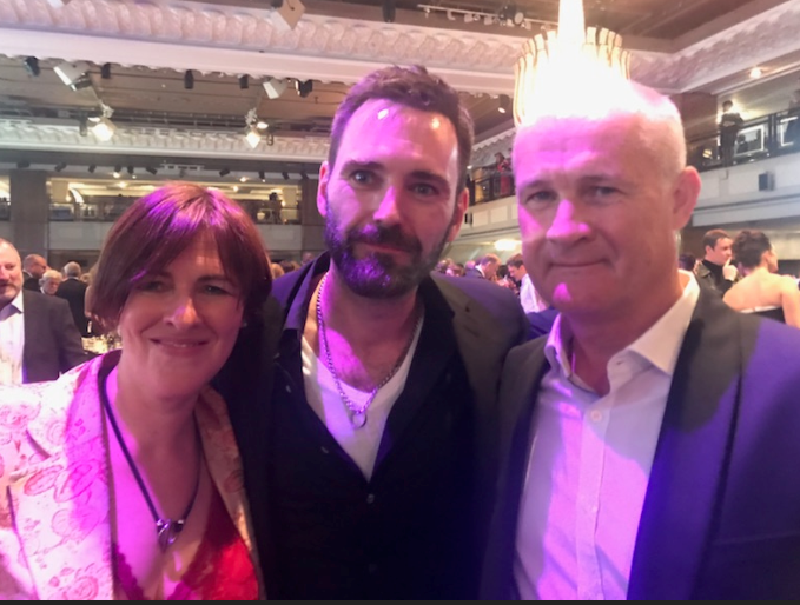EU Copyright : What it is and what is at stake
Some global technology companies like Facebook and YouTube have been exploiting loopholes in EU Copyright legislation to monetise musicians’ content, to support their business models. Creators are not fairly paid for the use of this content.
This ‘Transfer of Value’ will be solved by measures proposed by the European Commission and recently adopted by the Parliament’s JURI Committee. The issue will go to Plenary Vote on Thursday, 5th July and is a once-and-for-all opportunity to ensure that musicians and songwriters, are paid for the use of their work by these global tech companies.
However, these giant internet companies are now trying to preserve their market dominance. Using misleading slogans and arguments, they are presenting a false interpretation of the existing texts and pretending to defend citizens against censorship in the Internet, while only protecting their own commercial interest.
Let’s address each of their ‘arguments’ individually:
- Will proposed copyright measures negatively impact freedom of expression?
On the contrary, the proposed copyright measures will only positively impact freedom of expression,. A legal review by both the European Commission and the Council has found that such measures are fully compatible with the Charter of Fundamental Rights of the EU.
This is not something that affects the whole internet – only some platforms that are active in promoting, selecting and categorising content will have to comply. This will include companies such as YouTube and Facebook.
It is not general filtering or censorship and will not have the dramatic impact that these companies are suggesting as part of their scare-mongering.
Currently, platforms such as YouTube maintain that the consumer is liable for clearing copyright for the content they post to platform services. Under Article 13, consumers will have much better protection because they will have the legal certainty to post and exchange content, including copyright protected content, under any licence granted to the platform services.
There will be no changes in law for sites such as Wiki-based online encyclopaedias, research repositories, open access software platforms, private cloud services and online market places. These are excluded from the scope of Article 13.
In terms of the ‘censorship and filtering’ arguments, platforms like YouTube and Facebook already use technical measures and algorithms, but for their own commercial interest, and without taking into account the relevant data on the use of creative works.
These proposals simply mean they will now have to cooperate and include such relevant data so that creators can be accurately remunerated for the actual usages of their works.
- Will proposed copyright measures have a detrimental effect on the development of start-ups and small businesses in the digital market?
Absolutely not. Europe has a proven track record in successfully balancing innovation with its main principles of copyright and social justice; this balanced approach will continue. It’s important to note that the online music streaming market has been led by European companies established in Europe (e.g. Spotify, Deezer, Qobuz, 7digital, etc.). Moreover, cultural and creative industries are defined by start-ups and small and medium sized businesses.
To successfully enter the digital market, however, start-ups and SMEs need a level playing field. Article 13 will boost the development of the online market, enabling European start-ups in the user-uploaded content (UUC) and online content market to compete on a level playing field with global giants, granting easy access to the market and with legal certainty.
- Will proposed copyright measures signal the ‘end of memes’?
This is scare-mongering messaging shared by big platform services and is total nonsense- suggesting that the proposals will mean ‘the end of memes’ and ‘the end of the internet’. These proposals will mean no such thing. They only apply to platform services and place no obligation on the consumer. Most memes can be, and will continue to be used freely as they are covered by exceptions to copyright.
- Let’s deal with the facts:
The proposed copyright measures simply level the playing-field and introduce fairness. Creators – musicians, songwriters – whose work is being uploaded to platforms and used for free, will finally be paid for the use of their work, just as any other professional is.
The Commission and the Parliament Committee agree – we have to protect Europe’s cultural sector and have an opportunity now to do so. We must love culture as much as we love tech.
Technology is important for music and musicians welcome the legitimate use of their work. They write and perform songs so that people can hear them! What is not fair, however, is that music creators are being denied fair payment for their work.
This is not a fight against technology, it is simply providing balance so that artists get paid by global technology giants.
At Plenary this week, MEPs have a crucial opportunity to finally protect creators’ rights. A majority of voting MEPs is required to continue to protect Europe’s cultural sector.











